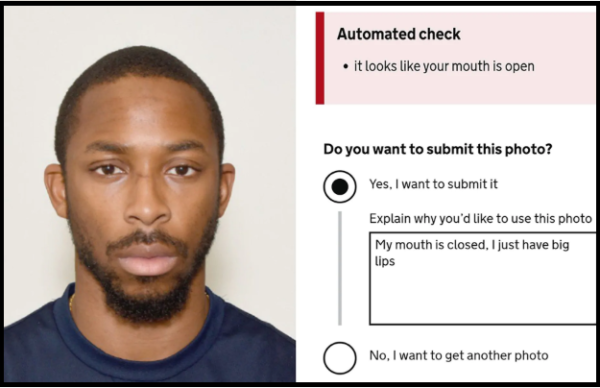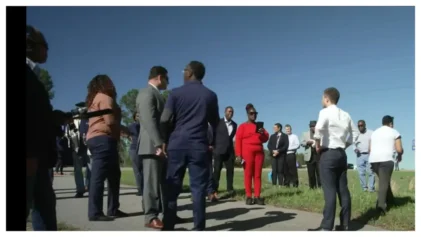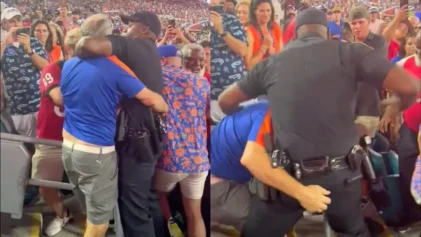A young Black man in the U.K. admits he was “annoyed” but not completely shocked after a facial detection system refused to accept his passport photo, mistaking his full lips for an open mouth.
Joshua Bada, 28, detailed the struggle of uploading the photo in which he posed with a neutral facial expression, as required by the government.

Joshua Bada, 28, shared a screenshot of his passport photo application. (Photo: Joshua Bada)
“When I saw it, I was a bit annoyed but it didn’t surprise me because it’s a problem that I’ve faced on Snapchat with the filters, where it hasn’t quite recognized my mouth, obviously because of my complexion and just the way my features are,” he said, according to The Telegraph.
Bada shared a screenshot of the error message he received from the gov.uk website, telling him his chosen picture didn’t satisfy the requirements. In a dialog box, he was forced to explain that he still wanted to submit the photo and noted that “my mouth is closed, I just have big lips.”
After sharing his experience online, Bada said he was flooded with messages from friends who got a laugh out of it but acknowledged it was a mistake like that “shouldn’t be happening.”
The Race Equality Foundation, a charity organization launched in 1995, blamed “digital racism” for the error, saying it believes the system wasn’t properly tested to see if could successfully identify Black folks and other people of color.
Samir Jeraj, a policy and practice officer for the charity, said: “Presumably, there was a there was a process behind developing this type of technology which did not address issues of race ethnicity. As a result, it disadvantages black and minority ethnic people.”
Flawed artificial intelligence systems like the one used by Bada have come under increased scrutiny for its tendency to target and/or misidentify non-white people. In August, the Detroit Police Department faced criticism over its quiet use of facial recognition cameras to make arrests, sparking privacy concerns among residents.
“This should be the last place police use the technology, because it can’t identify one black man or woman to another,” Detroit police commission member Willie Burton told The Guardian. “Every black man with a beard looks alike to it. Every black man with a hoodie looks alike. This is techno-racism.”
A recent report by Georgetown University estimated that nearly a fourth of America’s 18,000 police agencies now use the controversial software.


